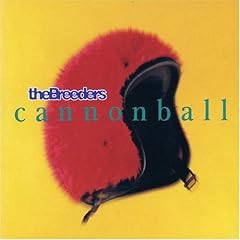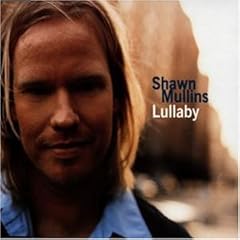After the release (and subsequent in explicable success) of Nevermind in 1991, the big record labels (Geffen, Atlantic, Capitol, A&M, London, etc) cheery picked bands from labels like Sub Pop, Twin/Tone, SST, and the like, and so-called indie bands already signed to these labels got a major push. This happened especially to those bands who'd been name checked by Kurt Cobain in one of his various interviews. When a band called the Butthole Surfers get signed to Frank Sinatra's label, Capitol Records, you know a serious change in music has happened.
To the majority of folks, these bands might be remembered as a mere blip on the pop culture radar (some might even use that horrible "one-hit wonder" moniker), but to many others, these bands are indie favorites; long-running, classic bands who just happened to hit the pop culture zeitgeist at the right time. It's all perspective.
NOTE: Not all of these went Top 40, but they at least hit the top 100 and were hits on the Mainstream Rock charts. So if I fudge a little, don't sue me. Please.
The Breeders - Cannonball
The Breeders - Divine Hammer
 A surprise hit from the band's 1993 album Last Splash, "Cannonball"--led by an infectious bass line and hypnotic chorus--took the MTV nation by storm, giving even the kids who didn't know Frank Black from Karen Black a taste at the ethereal, one-of-a-kind style of Kim Deal (and her sister Kelley). Didn't hurt that it had a cool Spike Jonze-directed video promoting it. In these days of High School Musical and Beyonce, it must seem odd to the young folks out there that such an idiosyncratic tune could do so well in the mainstream despite its strong pop sense, but such was the case in the post-Nirvana music world. Almost anything went. Not surprisingly, the rest of the Breeders' Last Splash album, despite its high quality, didn't catch on with DJs or radio listeners.
A surprise hit from the band's 1993 album Last Splash, "Cannonball"--led by an infectious bass line and hypnotic chorus--took the MTV nation by storm, giving even the kids who didn't know Frank Black from Karen Black a taste at the ethereal, one-of-a-kind style of Kim Deal (and her sister Kelley). Didn't hurt that it had a cool Spike Jonze-directed video promoting it. In these days of High School Musical and Beyonce, it must seem odd to the young folks out there that such an idiosyncratic tune could do so well in the mainstream despite its strong pop sense, but such was the case in the post-Nirvana music world. Almost anything went. Not surprisingly, the rest of the Breeders' Last Splash album, despite its high quality, didn't catch on with DJs or radio listeners.The follow-up, "Divine Hammer," didn't offer the same novelty--it made the mistake of being just plain good. The album (which can now be found in tons of cut-out bins and used CD stores worldwide) was still a massive success, hitting #33 on the Billboard Album Charts. The Breeders went on hiatus--for about a decade--while Deal spent her time at home in Dayton, Ohio making music with The Amps, her Guided by Voices-esque garage band and getting drunk.
 The Breeders' proper follow up, Title TK, didn't come until 2001, and though it was considered a success in the indie world, it unsurprisingly failed to live up to any its predecessor commercially. And Deal--who's been touring with her old band the Pixies for the past few years and recently released an album of new Breeders' material--is probably just as happy to have it that way.
The Breeders' proper follow up, Title TK, didn't come until 2001, and though it was considered a success in the indie world, it unsurprisingly failed to live up to any its predecessor commercially. And Deal--who's been touring with her old band the Pixies for the past few years and recently released an album of new Breeders' material--is probably just as happy to have it that way.Chart Positions:
1st single: "Cannonball," Modern Rock #2, Top 40 #39, Billboard Hot 100 #44, Mainstream Rock #32
2nd Single: "Divine Hammer," Modern Rock #28
The Lemonheads - Into Your Arms
The Lemonheads - Great Big No
Bonus! Love Positions - Into Your Arms (original)
 The Lemonheads had been around for five years before they saw an album of theirs hit the Billboard charts in 1992, and six years before they had a single hit the Billboard Hot 100. Hailing out of Boston, the group formed in 1986. Originally led by songwriter Ben Deily's punk rock songs, Deily eventually dropped out, leading pretty boy guitarist Evan Dando to take the reins with a more pop, power-pop influenced sound. Dando got the band signed to Atlantic in 1990, a year before the Big Indie Boom Nirvana caused. They released one album, Lovey, followed by It's a Shame About Ray, which gave them a bit of radio play with the title track, as well as a Simon & Garfunkel cover recorded for The Graduate's anniversary and later tacked on to the album's subsequent pressings, much to the band's chagrin. But they wouldn't reach the Hot 100 until their sixth album, Come on Feel the Lemonheads.
The Lemonheads had been around for five years before they saw an album of theirs hit the Billboard charts in 1992, and six years before they had a single hit the Billboard Hot 100. Hailing out of Boston, the group formed in 1986. Originally led by songwriter Ben Deily's punk rock songs, Deily eventually dropped out, leading pretty boy guitarist Evan Dando to take the reins with a more pop, power-pop influenced sound. Dando got the band signed to Atlantic in 1990, a year before the Big Indie Boom Nirvana caused. They released one album, Lovey, followed by It's a Shame About Ray, which gave them a bit of radio play with the title track, as well as a Simon & Garfunkel cover recorded for The Graduate's anniversary and later tacked on to the album's subsequent pressings, much to the band's chagrin. But they wouldn't reach the Hot 100 until their sixth album, Come on Feel the Lemonheads."Into Your Arms," one of a series of cover songs by Australian bands and songwriters that Dando would include on this and subsequent albums, in this case remaking an acoustic love song by Sydney guy/girl lo-fi duo Love Positions. The song--like so many of Dando's recordings--is shimmering, simple and incredibly memorable. The tune brings to mind similar jangly pop songs by '60s groups like The Archies. The song is rare for its time and for Dando's catalog in that it's a genuine love song, free of irony or snark.
After two unsuccessful follow up singles from the album ("It's About Time" and "Big Gay Heart"--both filled with racy lyrics, which couldn't have helped their chances at Billboard dominance), the fourth single, "The Great Big No," managed to chart on the Modern Rock charts. The song revealed the best of Dando's songwriting--a hooky, jangly pop song that still managed to thrill like a rocker. Dando's voice has the enviable quality of being at once honeyed enough for crooning a ballad, but ragged enough to keep up with the rock songs. Still, the mainstream had had their fill of Dando, who, after releasing almost an album a year for six years, went on a three year hiatus (read: crack cocaine binge) before recording his follow up, Car Button Cloth. Unfortunately, "Great Big No" would be the last charting song for Dando and co.
After another six years of nothing from Dando followed, save for the occasional stories of hard drug use and odd public performances that usually ended in the singer exiting the stage prematurely. But around 2001, the Lemonheads and Dando in particular regained a small cult following in the music community, particularly from singer-songwriters Ben Kweller and Ben Lee and in 2003, Dando teamed up with Lee and various producers to release a critically acclaimed solo album, Baby I'm Bored. While the album failed commercially, it proved Dando, despite his personal problems, still had the chops to keep him in the game. In 2006, using members of the pop-punk band the Descendents and Dinosaur Jr as a backing band, Dando released a new, critically acclaimed eponymous Lemonheads album and toured the US. With two more releases in the pipeline, including an album of covers, one hopes Dando's checkered past is behind him and his talent hasn't been impaired in the least.
Chart Positions:
1st single: "Into Your Arms" US Billboard Hot 100 #67, US Modern Rock #1
2nd single: "Great Big No" US Modern Rock #15
Hippie dippy homoerotic "Into Your Arms" MTV 120 Minutes video below
Incredibly '90s video for "Great Big No"
Visit the Breeders' site and buy stuff!
Visit the Lemonheads' site and buy stuff!








